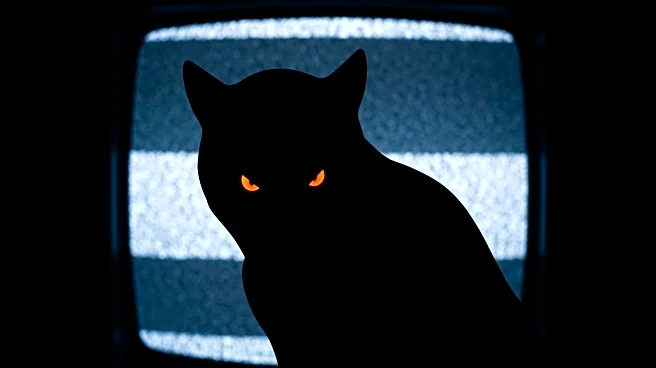What's Happening?
The documentary 'Predators' by David Osit critically examines the cultural impact and ethical implications of the television program 'To Catch a Predator.' The show, which aired from 2004 to 2007, involved sting operations targeting individuals engaging in inappropriate online conversations with minors. The documentary explores the show's methods, its portrayal of offenders, and the broader societal effects of such reality TV formats. Through interviews and behind-the-scenes footage, 'Predators' offers a reflective look at the motivations behind the show and its reception by audiences.
Why It's Important?
The documentary 'Predators' raises important questions about the ethics of reality television and its influence on public perceptions of crime and justice. By scrutinizing the methods and impact of 'To Catch a Predator,' the film encourages viewers to consider the moral complexities of media-driven justice and the potential for exploitation in pursuit of entertainment. This examination is crucial in understanding how media can shape societal attitudes towards crime and the individuals involved, highlighting the need for responsible and ethical content creation in the entertainment industry.
Beyond the Headlines
The documentary also delves into the psychological and emotional toll on those involved in the show, including the young actors who participated in the sting operations. It prompts a discussion on the long-term effects of such media exposure on individuals and the ethical responsibilities of producers in safeguarding participants' well-being. Additionally, 'Predators' challenges viewers to reflect on the broader cultural context of the era, marked by sensationalism and voyeurism in media coverage.












